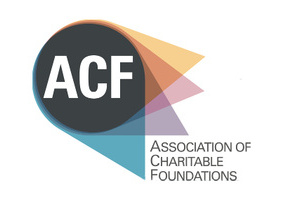A group of charitable foundations has called on the government to halt “disastrous” plans that would see the Human Rights Act (HRA) replaced with a British Bill of Rights.
An open letter currently has 21 signatories, including the Joseph Rowntree Charitable Trust, John Ellerman Foundation and the Co-op Foundation. Foundations urge the government to retain existing legislation, which enables people to hold the government and public bodies to account where their human rights have been breached.
The letter reads: “Repeal of the Human Rights Act will also have a disastrous effect on the development of a culture of rights.”
It adds: “It is our clear view that the UK government should not take these unnecessary and damaging proposals any further. To do so will weaken the human rights of everyone.”
Concerns
The letter has been published on the Association of Charitable Foundations (ACF) website after the topic had been discussed at an ACF meeting with Ariadne, a network of funders and philanthropists working on social change and human rights, earlier this year.
ACF has not signed the letter, because it does not work specifically on human rights, but will submit the letter to the government consultation and is inviting others to add their name.
In December 2021, the government announced its plans to replace the HRA with a British Bill of Rights.
The government says that the proposed bill would grant greater protection to public authorities such as the police to “perform freer functions” and give more freedom to the press in regards to privacy claims. It would also require an additional permission requirement before a human rights claim can be heard in court.
Foundations say that these changes would make it more difficult for people to bring human rights cases against court.
The Human Rights Act ‘should be retained’
The Human Right Act was passed by a Labour government in 1998. Signatories to the letter believe the law is paramount to the missions of many of the charities it supports.
The letter reads: “We know, from our work with diverse organisations in all four nations of the United Kingdom, that this will affect the ability of individuals to hold the government and public bodies to account by bringing cases when their human rights have been breached.
“There are compelling reasons why the current approach to human rights accountability should be retained. The Human Rights Act has greatly benefited a vast number of people from across society, improving their health and wellbeing; ensuring their dignity, autonomy, privacy, and family life; and overall improving their quality of life.”
Specific grievances
The letter states some of the specific qualms that the group of foundations has with the bill:
- Restraining the ability of UK courts to use human rights to impose positive obligations onto public authorities like the police.
- The introduction of the requirements of additional permission before a human rights claim can be heard in court. The group beliefs this will create more barriers to vulnerable individuals who believe their rights have been breached.
- The group is also concerned by the concept of individual responsibilities which could be introduced. They say this undermines the universality of the individual when they should all be equally entitled to their rights.
- That the law of the European Court of Human Rights (ECHR) will no longer need to be followed. The new bill would ensure that instead of taking into account the decision of the ECHR the UK courts would look purely at the rights themselves and decisions made in UK courts. This risks the UK interpreting rights restrictively, the letter argues, and “reduce access to justice and defeat the purpose of the Human Rights Act in ‘bringing rights home’”.
ACF said other foundations can sign the letter by emailing [email protected] with the name of the signatory, job title and full organisation name. As the letter will be submitted by 8 March, it is asking foundations to get in touch by Friday 4 March to be included.
Related articles











